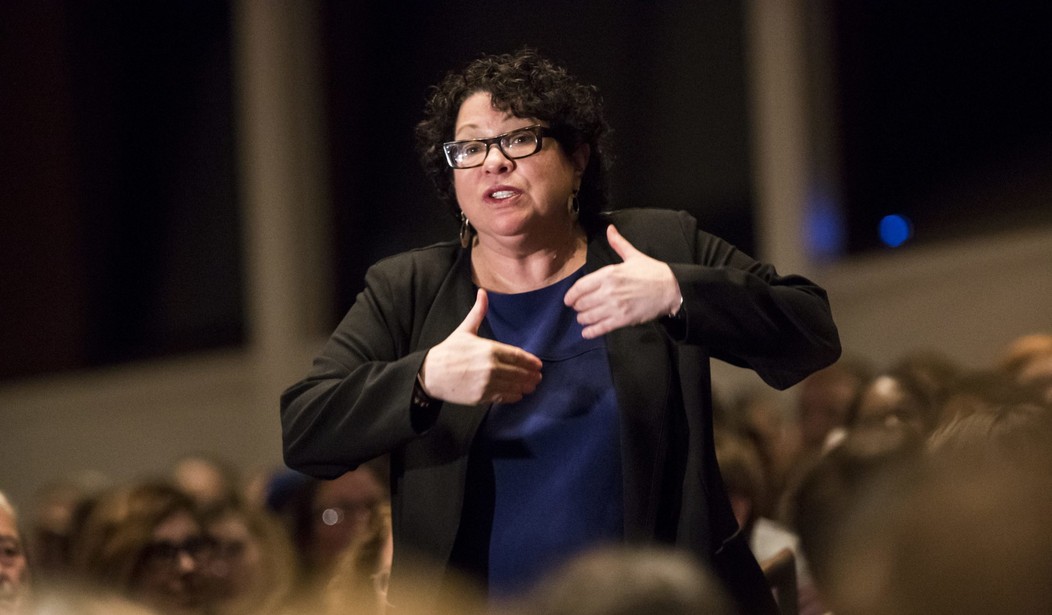
The U.N. has top men calculating its budgets. Top. Men.
Winston Churchill famously described the Soviet Union as a “a riddle wrapped in a mystery inside an enigma.” Much the same can be said of the ever-expanding finances of the United Nations, subject of a July 2 article by Fox News Editor-at-Large George Russell, headlined “UN Pay and Perks: After two years of US study, still a mystery.” Russell highlights a study of UN overall pay packages, released last month by the U.S. Government Accountability Office. As the GAO describes it, the UN General Assembly has “expressed concerns about the relatively large and growing portion of the UN budget spent on total compensation.”
The GAO tried to figure out exactly what’s going on with UN salaries and perquisites. The signal finding is that the UN itself may not be sure, and apparently is less than committed to finding out. The GAO, in its “highlight” summary of the study, reports that “the UN has begun to address concerns about the sustainability of its rising total compensation costs, including initiating a review of total compensation” — but it seems that the compensation under study is actually well short of the real total. Or, as the GAO summary puts it, the UN “total” review “does not include key elements” (such as the almost $4 billion unfunded liability of the UN’s health insurance plan for retirees).
But how can such things be matters of mystery? After all, we know that the U.S. funds 22% of the UN’s regular budget. Surely with a bit of basic arithmetic the figures will fall into place?
Not a chance. That UN regular budget — meaning the budget of the General Assembly — is by now just a small fraction of the overall UN system, which includes a great many additional billions for peacekeeping operations, assorted funds, programs, commissions, subsidiary bodies, “other entities,” etc. etc. (brace yourself, here’s the organizational chart). Just to give you the general idea: the regular budget currently totals roughly $2.75 billion per year. But when I went looking earlier this year for a figure on the UN’s total, system-wide budget (while writing an article on “The Twisted Conundrum of Funding the United Nations,”) the information I finally dredged up from the depths of the UN web site was that for 2012 the UN system had reported revenues of $41.5 billion. How the UN got to that number is yet another enigma, wrapped in indecipherable and in some instances inaccessible bookkeeping. But it’s an intriguing sum, for an institution prone to pleading endless funding shortfalls. Where is all that money going?
For that matter, where is all that money coming from? The biggest contributor to this entire UN system is clearly the U.S., which tends to contribute 22% or more not only to the regular UN budget, but to most UN operations. But exactly how much, altogether, does the U.S. chip in these days?
It’s a mystery. Following a rash of UN scandals some years ago, such as Oil-for-Food and an extravaganza of graft in UN peacekeeping procurement, the U.S. Congress began requiring from the president’s Office of Management and Budget an annual accounting of all U.S. contributions to the UN — summed across all U.S. government departments and agencies. But, as Russell notes in his article on the mysteries of UN pay and perks, the U.S. government has stopped releasing these figures. The congressional requirement for this information expired in 2011, when the last of these OMB reports tallied U.S. total contributions to the UN as $7.69 billion for Fiscal Year 2010. For the past three years, there have been no more OMB reports on this matter.
In sum, the UN has a problem with swelling salaries and staff perquisites, but can’t come up with a real total for its universe of pay packages, and its total review of this scene is actually less than total. Among the UN’s 193 member states, the U.S. contributes the biggest share, but the Obama administration no longer releases total numbers for how many billions that really entails. The GAO in its recent report recommends that the State Department should “work with other UN member states to ensure that the costs of key elements of total UN compensation are reviewed to address rising staff costs and sustainability.”
It all sounds like a recipe for spending even more money to review the mystery of how the money is being spent — the real problem being that neither the UN nor the Obama administration seems terribly interested in solving either the riddle of U.S. funding or the enigma of UN spending. All we really know for sure is — yes — those are your tax dollars at work.









Join the conversation as a VIP Member